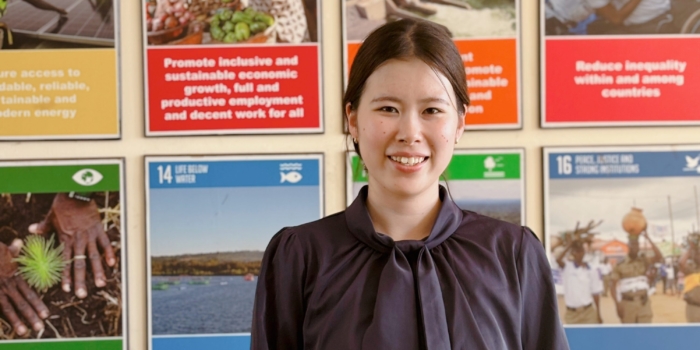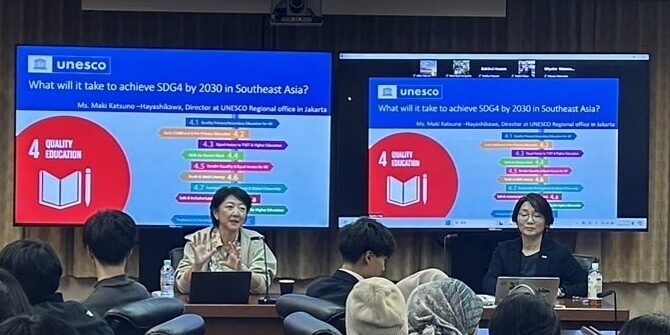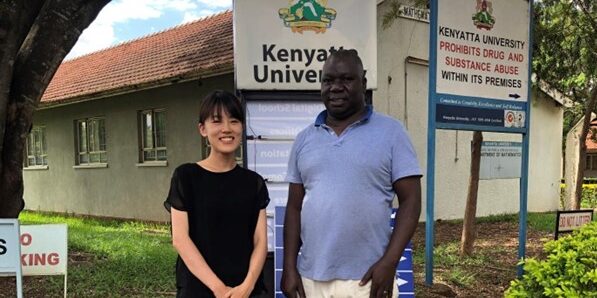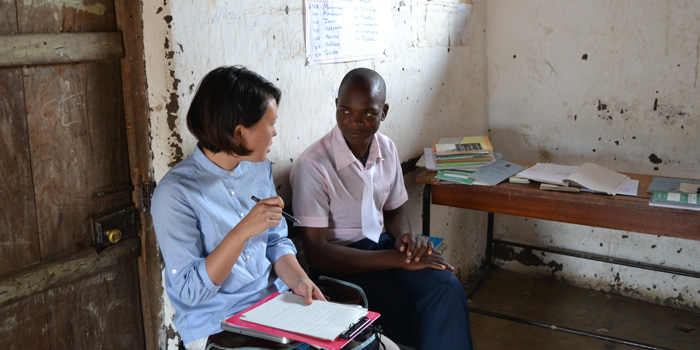From February 10th to March 12th, 2024, I conducted an internship at the Office of the Prime Minister in Uganda, under the guidance of Dr. Albert Byamugisha, Senior Technical Advisor at the SDGs Secretariat. This is the report of my internship.
The objective of the internship was to analyze the current situation and challenges of menstrual hygiene management (MHM) among girls in primary education in Uganda. To achieve the objective, I conducted (1) surveys and interviews with girls, boys, and teachers in primary schools in the Wakiso, Mukono, and Jinja districts, and (2) interviews with experts of UNICEF Uganda’s Water, Sanitation, and Hygiene (WASH) sector, and primary education sector.
The surveys and interviews at the primary schools in the Wakiso, Mukono, and Jinja districts were conducted with the cooperation of the Ministry of Education and Sports, in addition to the Office of the Prime Minister. A total of five schools were selected for the survey: two in Wakiso, one in Mukono, and two in Jinja. I conducted surveys with 15 girls from each selected school and interviewed three girls, two boys, and two senior teachers from each school.
Regarding the surveys for female students, although I explained that it was acceptable to leave questions unanswered, most girls responded to all questions. As for the interview surveys, due to the MHM being a little bit sensitive topic for girls, it was challenging to expand the discussion. Nevertheless, I was able to learn about the experiences of female students regarding menstruation and how they deal with it in their daily lives, and thus understood the current situation and challenges of menstrual hygiene management in urban primary schools. The survey was conducted in urban primary schools, and the survey results indicated that both teachers and students recognize the importance of menstrual hygiene management and they have basic knowledge about menstruation.
The interviews with the experts of  UNICEF Uganda’s WASH and primary education sectors were conducted to gain a deeper understanding of the support and projects related to menstrual hygiene management provided by UNICEF. Through those interviews, I learned in detail about the collaboration between various sectors of UNICEF focusing on both the provision of materials and improvement of sanitation facilities (Hard support), and education and awareness campaigns for children, teachers, and communities (Soft support).
UNICEF Uganda’s WASH and primary education sectors were conducted to gain a deeper understanding of the support and projects related to menstrual hygiene management provided by UNICEF. Through those interviews, I learned in detail about the collaboration between various sectors of UNICEF focusing on both the provision of materials and improvement of sanitation facilities (Hard support), and education and awareness campaigns for children, teachers, and communities (Soft support).
I’ll continue my research and investigation, focusing on the implementation and issues of MHM in rural primary schools, and aiming to conduct a comparative analysis of the current situation and challenges of MHM between urban and rural areas.
I would like to express my sincere gratitude to Dr. Albert Byamugisha for warmly accepting me as an intern at the Office of the Prime Minister, to everyone at the Ministry of Education and Sports for their support during the field surveys, to everyone at the SDGs Secretariat of the Office of the Prime Minister.
Finally, I would like to express my sincere gratitude to Professor Keiichi Ogawa for providing such a valuable opportunity, and to everyone else who assisted with this internship.
Authored by Mayuko Mizukure (Master Student)
Related







